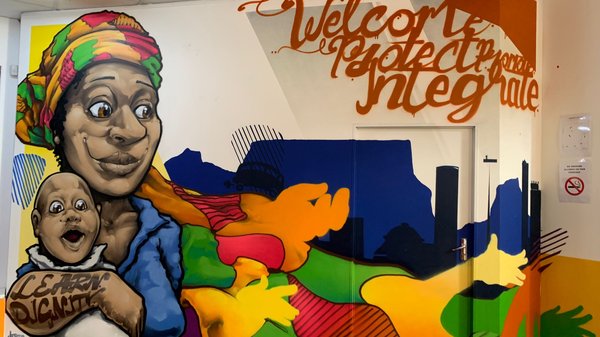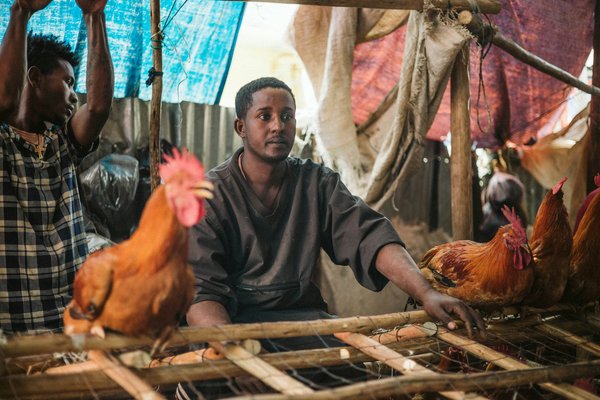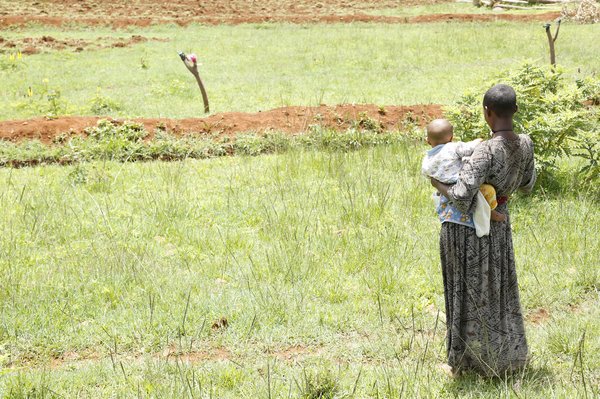
Children resting in an Ethiopian community centre, Gqeberha (Port Elizabeth), South Africa. Photo by Heaven Crawley. CC BY NC 4.0
Introduction
This report builds on the findings of early work undertaken by the Migration for Development and Equality (MIDEQ) Hub. MIDEQ found that Ethiopian children in South Africa often lack access to documentation and a legal identity, which significantly impacts on their ability to access rights and justice as well as basic public services including education.
The research was undertaken using a Justice Chain Analysis (JCA) approach, which employs a political economy analysis to better understand the political, institutional, and relational aspects of an identified justice issue. Reflecting the MIDEQ Hub’s overarching approach, JCA begins with data and evidence on people’s justice needs and what justice solutions work, is outcome oriented, and context specific. The aim of JCA is to better understand how context-specific politics and power relations create justice barriers. It identifies context-specific enablers that can be harnessed to facilitate change; research that overwrites or fails to take seriously the experiences of migrants in proposing justice solutions may perpetuate existing injustices. Moreover, a bottom-up approach to migration justice is necessary for any resulting recommendations or solutions to have meaningful applicability and legitimacy. The JCA approach shares many characteristics with a people-centred justice approach, which starts with an understanding of people’s justice needs and designs tailored solutions in response.
The research began with an in-depth desk review of available evidence on the experiences of migrants, and especially migrant children, in South Africa, focusing on access to documentation and a legal identity. Then, over a five-month period between February to June 2023, the authors conducted a total of 26 key informant interviews (KIIs), with members of four Ethiopian communities in the Eastern and Western Cape of South Africa, and representatives from the following organisations: Centre for Child Law; Scalabrini Centre of Cape Town; Lawyers for Human Rights; Somali Association of South Africa; Legal Resource Centre; Refugee Rights Clinic (Nelson Mandela University); Refugee and Migrant Support Centre; Somali Association of South Africa (SASA); and United Nations High Commissioner for Refugees (South Africa). In addition, the team conducted focus group discussions (FGDs) and interviews with the Ethiopian community, speaking with a total of 78 people, individually and in groups, to better understand their experiences and the impacts on their lives of being unable to access documentation and a legal identity.
As part of our analysis, we held several sessions using the JCA to build a collective understating of the evidence and to develop practical and action-based recommendations for a range of stakeholders, including the Government of South Africa, civil society, and Ethiopian migrant communities. These sessions served as a crucial compass for identifying appropriate interventions that would be meaningful, and which would also improve the justice landscape for marginalized and disadvantaged migrants if implemented.
Finally, between August and October 2023, a series of online validation sessions were held with selected members of the Ethiopian migrant communities and civil society organisations (CSOs) who had engaged in the research and are interested in taking forward the findings.



